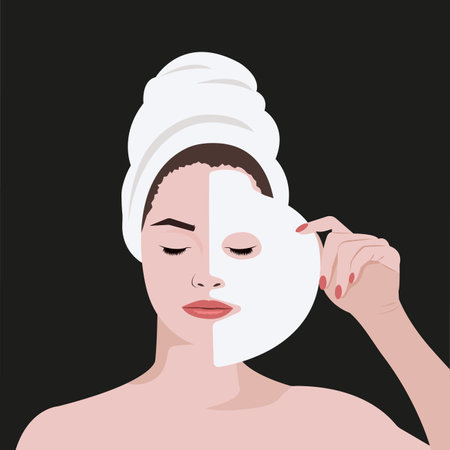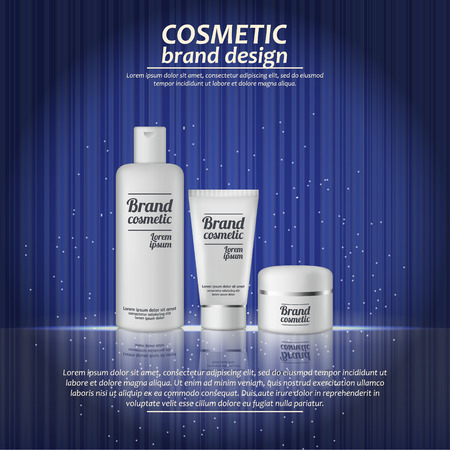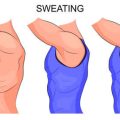1. Start with Gentle, Hydrating Cleansers
In your 40s, one of the most important shifts in skincare is choosing the right cleanser. As we age, our skin naturally produces less oil, which often results in dryness and increased sensitivity. Using harsh cleansers, especially those that foam heavily or contain sulfates, can strip away essential moisture and damage your skin’s protective barrier.
Do: Switch to a gentle, hydrating cleanser that supports your skins moisture levels. Look for creamy formulas that are sulfate-free and enriched with ingredients like hyaluronic acid, glycerin, or ceramides.
Don’t: Use strong foaming cleansers or products with alcohol and fragrance. These can irritate mature skin and make dryness worse.
Recommended Ingredients to Look For
| Ingredient | Why It’s Great for 40s Skin |
|---|---|
| Hyaluronic Acid | Helps retain moisture and plumps the skin |
| Ceramides | Reinforces the skin barrier and locks in hydration |
| Glycerin | Draws water into the skin for lasting softness |
| Aloe Vera | Soothes irritation and calms redness |
Tips for Cleansing in Your 40s
- Use lukewarm water: Hot water can dry out your skin even more.
- Limit cleansing to twice a day: Morning and night is enough—over-cleansing can lead to more dryness.
- Pat your face dry: Avoid rubbing with a towel; gently pat instead to reduce irritation.
Your cleanser sets the tone for the rest of your skincare routine. By choosing a nourishing, gentle option, youre giving your skin the care it needs to stay healthy and glowing throughout your 40s.
2. Incorporate Retinoids—But Ease Into It
Retinoids are one of the most effective ingredients for anti-aging, especially in your 40s when collagen production naturally slows down and fine lines start to become more noticeable. These vitamin A derivatives can help boost skin cell turnover, fade dark spots, smooth out texture, and minimize wrinkles. But while they’re powerful, they also need to be used with care—especially if you’re new to them.
Why Retinoids Matter in Your 40s
In your 40s, your skins natural renewal process starts to slow down. Retinoids help stimulate collagen production and encourage fresh, healthy skin cells to surface. This means smoother skin, fewer visible lines, and a brighter complexion over time. But here’s the catch: starting too strong or using them too often can lead to dryness, peeling, and irritation.
Start Low and Slow
When introducing retinoids into your routine, it’s all about patience. Begin with a low concentration (like 0.25% or 0.3%) just two to three times per week. As your skin adjusts, you can gradually increase frequency and strength if needed.
Retinoid Introduction Guide
| Week | Frequency | Tips |
|---|---|---|
| 1–2 | 1–2 times/week | Apply at night; follow with moisturizer |
| 3–4 | 2–3 times/week | Watch for dryness or flaking; use gentle cleanser |
| 5+ | Every other night (if tolerated) | If no irritation, consider a higher strength after consulting a dermatologist |
Don’t Skip Moisturizer or Sunscreen
Retinoids can make your skin more sensitive to the sun and prone to dryness. Always follow up with a hydrating moisturizer and wear broad-spectrum SPF 30+ during the day—even if youre mostly indoors. This helps protect your skin barrier and prevents further aging from UV damage.
Avoid Mixing With Certain Ingredients
If you’re using retinoids at night, avoid layering them with products that contain AHAs, BHAs, or vitamin C at the same time—it can be too harsh on the skin. Instead, alternate nights or use vitamin C in the morning.

3. Don’t Skip Daily SPF—Even on Cloudy Days
Sun protection is non-negotiable when it comes to anti-aging skincare in your 40s. Even if youre just running errands or staying indoors most of the day, UV rays can still penetrate windows and clouds—causing skin damage that leads to wrinkles, dark spots, and loss of firmness over time.
Why SPF Matters Every Single Day
UV exposure is the number one cause of premature aging. It breaks down collagen and elastin, which are essential for keeping your skin firm and smooth. This damage doesn’t just happen during summer beach days—it builds up slowly, every day, even when the sun isn’t visible.
Common Myths About Sunscreen
| Myth | Truth |
|---|---|
| “I don’t need sunscreen if I’m indoors.” | UVA rays can penetrate windows and still harm your skin. |
| “It’s cloudy, so I’m safe.” | Up to 80% of UV rays can pass through clouds. |
| “Darker skin tones don’t need SPF.” | All skin tones are affected by UV damage, even if it’s less visible. |
What Kind of Sunscreen Should You Use?
Choose a broad-spectrum sunscreen with SPF 30 or higher. “Broad-spectrum” means it protects against both UVA (aging) and UVB (burning) rays. Look for lightweight, non-comedogenic formulas that won’t clog pores or interfere with your makeup routine.
Pro Tip:
If you wear makeup, consider using a setting spray or powder with built-in SPF for easy reapplication throughout the day.
The key takeaway? Make SPF a daily habit—just like brushing your teeth. Your future skin will thank you.
4. Be Cautious with Exfoliation
In your 40s, your skin’s natural renewal process starts to slow down, which makes exfoliation an important step in your skincare routine. However, more isnt always better—especially at this stage. While exfoliating helps remove dead skin cells and boosts cell turnover, overdoing it can lead to irritation, dryness, and a weakened skin barrier.
Why Over-Exfoliating Is a Problem
Your skin becomes thinner and more sensitive as you age. Harsh scrubs or frequent exfoliation can strip away essential oils and damage the protective layer of your skin. This can result in redness, flakiness, and even breakouts—exactly what youre trying to avoid in an anti-aging routine.
Choose Gentle Chemical Exfoliants
Instead of rough physical scrubs that can cause microtears on mature skin, opt for gentle chemical exfoliants. Ingredients like lactic acid and mandelic acid are ideal choices for people in their 40s because they work on the surface of the skin without being too aggressive.
Comparison of Exfoliant Types
| Type | Description | Recommended for 40s? |
|---|---|---|
| Physical Scrubs | Contain gritty particles to manually remove dead skin cells | No – Too harsh for aging skin |
| Lactic Acid (AHA) | Mild chemical exfoliant derived from milk; hydrates while exfoliating | Yes – Gentle and effective |
| Mandelic Acid (AHA) | Larger molecule AHA; penetrates slowly, reducing irritation risk | Yes – Ideal for sensitive or aging skin |
| Glycolic Acid (AHA) | Strong chemical exfoliant; penetrates deeply | Use with caution – Can be too strong if used frequently |
| BHA (Salicylic Acid) | Dissolves oil and unclogs pores; better for oily/acne-prone skin | Maybe – If you have combination or oily skin, use sparingly |
Tips for Safe Exfoliation in Your 40s
- Limit exfoliation to 1–2 times per week.
- Always follow with a hydrating serum or moisturizer.
- If your skin feels tight or looks red after exfoliating, give it a break.
- Avoid combining multiple exfoliants at once (e.g., AHA + BHA).
- Use sunscreen daily—exfoliated skin is more sun-sensitive.
Treat exfoliation as a tool, not a cure-all. Being gentle and consistent will keep your skin glowing without causing damage.
5. Prioritize Moisture and Barrier Repair
In your 40s, keeping your skin hydrated and maintaining a healthy skin barrier is more important than ever. As we age, our skin naturally loses moisture and becomes thinner, making it more prone to dryness, irritation, and fine lines. That’s why focusing on moisturizers that nourish and protect is a must.
✔️ Do: Choose Moisturizers with Skin-Loving Ingredients
Look for products that contain ingredients like ceramides, hyaluronic acid, and peptides. These help lock in moisture, repair the skin’s natural barrier, and support collagen production—key factors in keeping mature skin smooth and plump.
Recommended Ingredients
| Ingredient | Benefit |
|---|---|
| Ceramides | Help restore the skin’s protective barrier and prevent moisture loss |
| Hyaluronic Acid | Draws water into the skin for lasting hydration |
| Peptides | Support collagen production and improve skin elasticity |
❌ Don’t: Use Products That Dry Out or Irritate Your Skin
Avoid alcohol-heavy formulas or heavily fragranced products. These can strip away natural oils and disrupt your skin barrier, leaving your face feeling tight, dry, or even inflamed. When shopping for skincare, always check the ingredient list and opt for fragrance-free or dermatologist-recommended options when possible.
Quick Tip:
If your skin feels tight after applying a product, that’s a sign it may be too harsh for you. Listen to your skin—it’ll tell you what it needs!
6. Embrace Lifestyle Habits That Support Skin Health
When it comes to anti-aging skincare in your 40s, its not just about what you put on your face—its also about how you treat your body. Healthy lifestyle habits play a huge role in keeping your skin looking youthful and radiant. Heres what to do (and what to avoid) to support your skin from the inside out.
Do: Stay Hydrated
Your skin needs water to stay plump and smooth. Drinking enough water throughout the day helps maintain elasticity and can reduce the appearance of fine lines.
How Much Water Should You Drink?
| Activity Level | Recommended Daily Water Intake |
|---|---|
| Low (sedentary) | 8 cups (64 oz) |
| Moderate (light exercise) | 9–10 cups (72–80 oz) |
| High (active lifestyle) | 11+ cups (88+ oz) |
Do: Get Enough Sleep
Your skin repairs itself while you sleep. Aim for 7–9 hours each night to help reduce puffiness, dark circles, and dullness.
Don’t: Sacrifice Sleep for Screen Time
Binge-watching shows or scrolling through your phone late at night can cut into your beauty rest. Try setting a bedtime routine that supports better sleep hygiene.
Do: Eat a Diet Rich in Antioxidants
Nutrients like vitamins C and E, beta-carotene, and selenium help protect your skin from damage caused by free radicals. Load up on colorful fruits and vegetables, nuts, seeds, and green tea.
Top Antioxidant-Rich Foods for Skin Health
| Food | Main Antioxidant Benefit |
|---|---|
| Blueberries | Vitamin C & Anthocyanins – promote collagen production |
| Spinach | Beta-carotene & Vitamin E – protects against UV damage |
| Almonds | Vitamin E – supports skin barrier function |
| Green Tea | Catechins – reduce inflammation & improve elasticity |
Do: Manage Stress Effectively
Chronic stress increases cortisol levels, which can lead to breakouts, dryness, and accelerated aging. Find ways to relax—whether it’s yoga, walking outdoors, journaling, or deep breathing exercises.
Don’t: Ignore Your Mental Wellness
Your emotional health is just as important as physical health when it comes to aging gracefully. A calm mind often reflects through healthy, glowing skin.
The bottom line? Glowing skin in your 40s isn’t just about creams and serums—it’s about taking care of yourself from head to toe with everyday habits that keep both your body and skin in balance.


